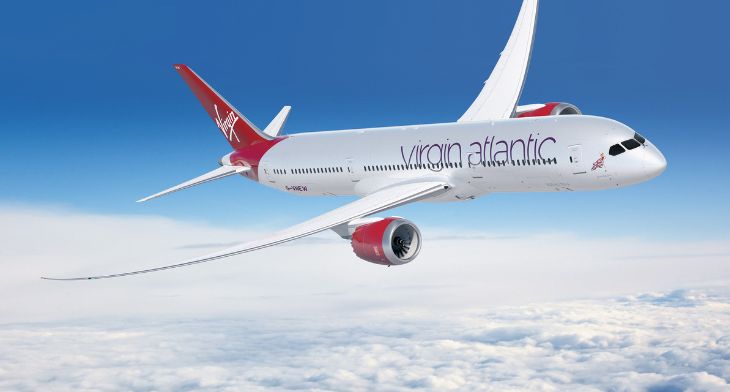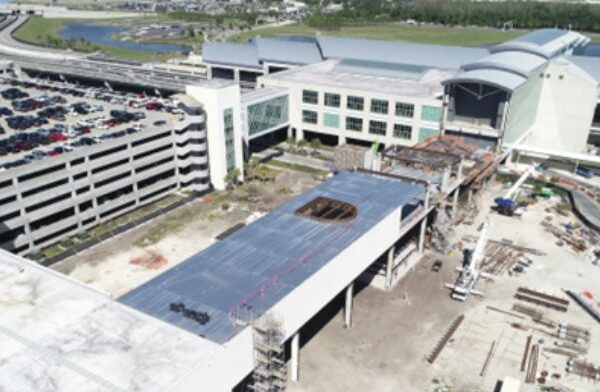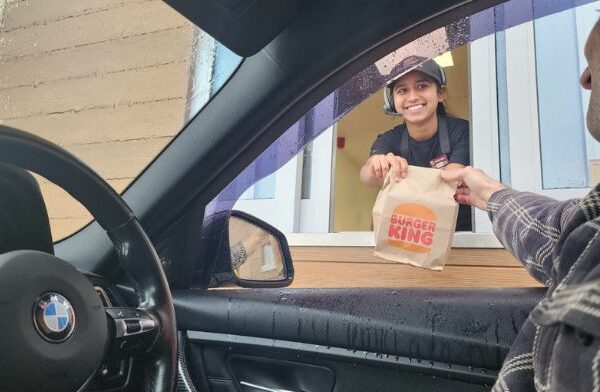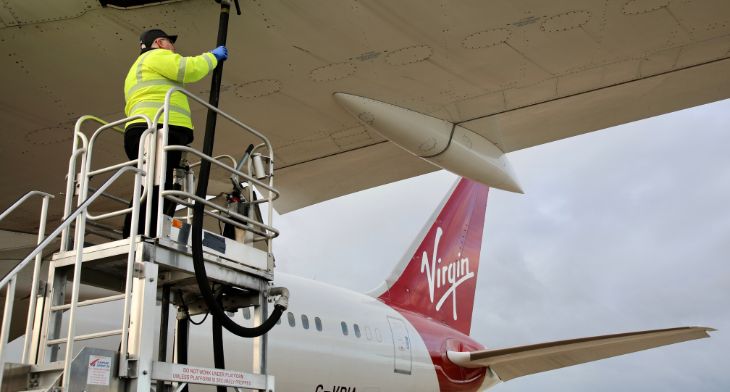


Following a year of “radical collaboration” to demonstrate the capability of sustainable aviation fuel (SAF) for long-haul flights, Virgin Atlantic’s historic 100% SAF-fuelled transatlantic flight took off from London Heathrow bound for New York JFK just before midday on Tuesday 28 November.
Up until last week, the Virgin Atlantic led consortium (which includes Rolls Royce, Boeing, the University of Sheffield, Imperial College London and Rocky Mountain Institute) had set its sights on becoming the first ever to complete a transatlantic flight using 100% SAF. However, business jet manufacturer Gulfstream quietly snuck in under the radar to stake its claim on that achievement when it flew a G600 aircraft on 100% SAF from its headquarters in Savannah to Farnborough Airport in the UK on 19 November.
Still, the Virgin Atlantic flight (named Flight100) marks a significant milestone in decarbonising air travel as the first 100% SAF fuelled commercial transatlantic flight. Alongisde Virgin CEO, Shai Weiss, the stellar line-up of passengers on the historic flight includes Sir Richard Branson, Virgin Atlantic’s Founder and the UK’s Transport Secretary, Mark Harper, as well as representatives from Boeing, Rolls-Royce and Air bp.
Ahead of the flight and to reinforce its significance, Branson underlined that “the world will always assume something can’t be done, until you do it. The spirit of innovation is getting out there and trying to prove that we can do things better for everyone’s benefit… I couldn’t be prouder to be onboard Flight100 today alongside the teams at Virgin Atlantic and our partners, which have been working together to set the flight path for the decarbonisation of long-haul aviation.”
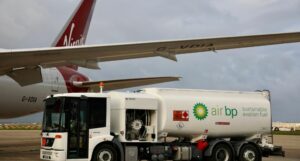

Commenting ahead of the flight, Virgin’s Shai Weiss, said: “Flight100 proves that SAF can be used as a safe, drop-in replacement for fossil-derived jet fuel and it’s the only viable solution for decarbonising long-haul aviation. It’s take radical collaboration to get here and we’re proud to have reached this important milestone, but we need to push further. There’s simply not enough SAF and it’s clear that in order to reach production at scale, we need to see significantly more investment. This will only happen when regulatory certainty and price support mechanisms, backed by Government, are in place. Flight100 proves that if you make it, we’ll fly it.”
Meanwhile Federica Berra, Senior VP, Air bp, explained: “This is a milestone moment for aviation and for our industry and helps build evidence for the reliability and safety of using 100% SAF in today’s aircraft.” She also underlined the need for wider collaboration in meeting the industry’s ambitious net zero goals as she added: “Collaboration with industry partners is vital to successfully scale SAF, as is long-term policy support to foster supply and demand. Our expert team has worked for months in preparation for today’s flight, drawing upon their deep knowledge and skills in fuel handling, blending and logistics, overall, ensuring product qulaity and safety standards have been met”
Although achieving aviation’s net zero targets will require multiple solutions, technologies such as electric and hydrogen remain decades away. SAF, which is availalbe now and doesn’t require any changes to aircraft or airport infrastructure, delivers CO2 lifecycle emissions savings of up to 70%. However today it represents less than 0.1% of global jet fuel volumes and fuels standards allow for just a 50% SAF blend in commercial jet engines. Flight100 underpins the challenge that scaling up production is one of policy and investment, and industry and government must move quickly to create a thriving UK SAF industry.
Transport Secretary Mark Harper said: “Today’s 100% SAF powered flight shows how we can decarbonise transport both now and in the future by cutting lifecycle emissions by 70% and inspiring the next generation of solutions.
“This government has backed today’s flight to take-off and we will continue to support the UK’s emerging SAF industry as it creates jobs, grows the economy and gets us to Jet Zero.”
As well as proving the capabilities of SAF, Virgin and its partners will assess how the use of 100% SAF affects the flight’s non-carbon emissions. It says the research will improve scientific understanding of the effects of SAF on contrails and particulates and help to implement contrail forecasts in the flight planing process.
